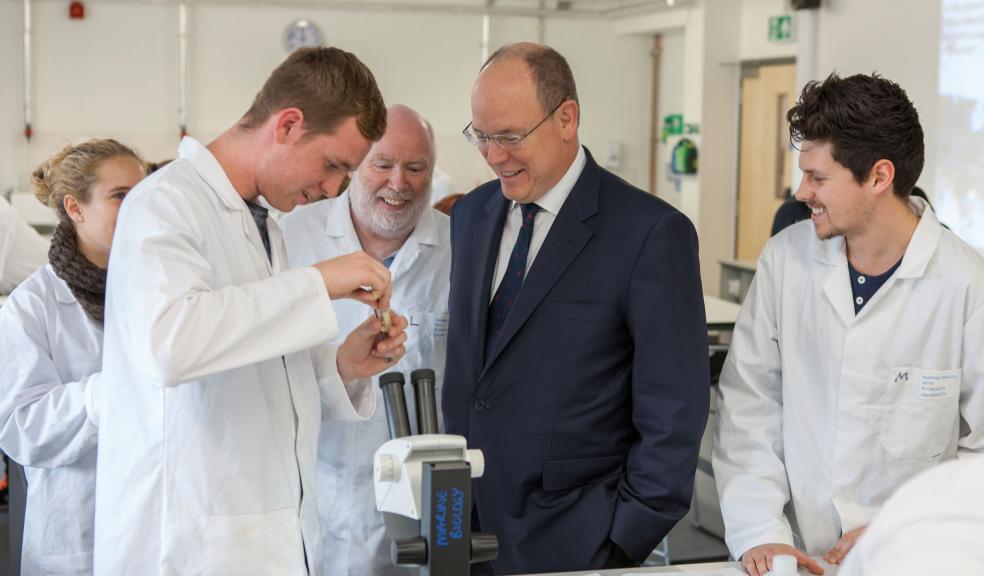
Prince Albert II of Monaco opens Marine Station
A new waterfront teaching, research and diving facility at Plymouth University has been formally opened by Prince Albert II of Monaco at a special ceremony yesterday (Thursday 29 October).
The Marine Station, located on the city’s waterfront at Coxside, between the National Marine Aquarium and Queen Anne’s Battery, is a first in UK higher education in being the only facility of its type to be within walking distance from the main campus.
Prince Albert II, who holds an Honorary Doctorate of Science from the University, and whose Monaco Foundation supports research into protecting the environment, unveiled a plaque to signal the official opening of the £4.85 million facility. He then took a tour of the building and met staff and students who use it as part of their marine biology and engineering degrees, and for research purposes.
Professor David Coslett, Interim Vice-Chancellor, said: “The Marine Station embodies our continued commitment to marine science and engineering, as well as our investment in teaching and learning, research, and the student experience here in Plymouth. And it symbolises our deep connection to the sea, through the heritage of the city, the history of the University and our world-leading work today in marine and maritime.
“We were delighted that Prince Albert II could be with us to formally open the Marine Station, because of his outstanding work, through his Foundation, in protecting the environment, encouraging sustainable and fair management of natural resources, and supporting innovative and ethical solutions across climate change, water quality and biodiversity.”
The £4.85 million, two-storey building, has teaching rooms with panoramic views of Plymouth Sound, a 120 square metre ‘wet lab’, where up to 50 students at a time can study samples, which can then be transferred to the aquarium facility served by continuous fresh seawater.
It serves as the base for the University’s fleet of vessels, including the research vessel Falcon Spirit and sail-training vessel Take the Helm, and its fully-equipped SCUBA diving facilities not only enable students to learn the skills needed to become scientific divers, but are also a centre for professional diving training for scientists at organisations such as the British Antarctic Survey.
Professor Kevin Jones, Executive Dean of the Faculty of Science and Engineering, said: “The Marine Station transforms the way that our students can interact with the marine environment, enabling them to move from the lecture theatre and laboratory to the water in a matter of minutes. It speaks of our desire to attract and nurture the next generation of marine scientist, and provide them with the facilities, equipment, expertise and surroundings that will enable them to develop their skills and further their understanding of key environmental issues.”











